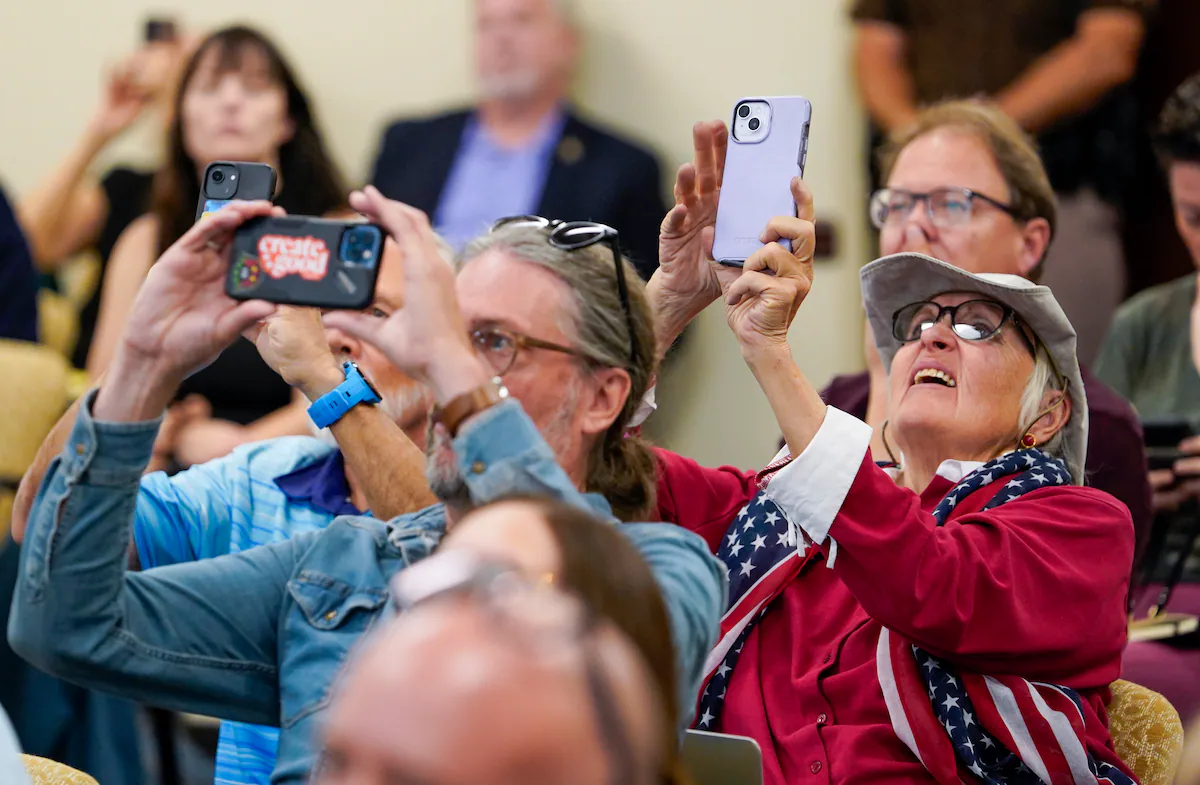
It should have been easier than this. Cheaper, more transparent and more democratic.
And next time it can be. If the people of Utah — and its judiciary — will keep up the pressure on a Legislature that otherwise seems determined to ignore the will of the people and any semblance of democratic rule.
We’re talking, of course, about the process of drawing Utah’s congressional districts.
Only after the Legislature thumbed its collective nose at 2018’s Proposition 4, in which voters demanded a nonpartisan commission to draw congressional and legislative districts, and only after a long and expensive court battle, is Utah about to get a set of congressional districts that, just maybe, won’t be brazenly and overwhelmingly slanted toward Republican candidates.
After losing their argument before both the Utah Supreme Court and a Third District judge who was following the Supreme Court’s guidelines, lawmakers were forced into obeying the law and sketching out alternative maps that, while not perfect, are a great improvement over the overtly gerrymandered maps drawn by lawmakers in 2021 and used in the 2022 and 2024 elections.
The legislative committee, thrown together in compliance with Judge Dianna Gibson’s August 25 order, Thursday added one proposed design from the two Democrats allowed to serve on the panel. A final choice, first from the committee, then from the full Legislature, is now set for an Oct. 6 special legislative session, after a 10-day public comment period that started Friday (comment here).
That is, if Gibson approves. If she doesn’t, she may turn to those who brought the matter before the courts.
The whole thing has to be settled by Nov. 10, state elections officials say, to have the necessary mechanisms in place for the 2026 elections.
Public pressure to preserve Proposition 4 will need to continue through the next round of reapportionment, following the 2030 federal census, when Utah may win a fifth congressional seat.
The point of government is not to win, but to serve
The fatal flaw in the 2021 maps drawn by the Legislature was that Salt Lake County was split among the state’s four congressional districts in an attempt to drown that nexus of left-leaning Utahns in seas of Republican-voting counties.
The unmistakable message from our Republican lawmakers — in legislation before the court rulings, in incessant, juvenile complaining afterward — is the idea that “we won. We get to.”
But voters in Utah have directly said, “We elected you, and you ought to give us the best government possible.”
The best government possible doesn’t silence the voice of our largest city or our largest county for arbitrary reasons. You’re too urban. You’re too different. You’re too Democratic. Or, worst of all, “we won. We get to.”
Government at its best is a conversation, a marketplace of ideas. Why would anyplace that wants good government want to tell a sizable percentage of its population that we just don’t need that many ideas?
The current behavior of the Legislature is the best evidence our elected public servants aren’t making much effort to serve the public. They are engaging in the debased red and blue team sports that have infected the entire country.
Utah’s legislative majority has one clear objective: To win and to keep on winning. By any means necessary.
But Proposition 4, as affirmed by the courts, has made a legal demand of our legislators to serve the public by providing the best possible electoral environment to produce the best possible government for the people.
Non-competitive districts do not provide the best possible government.
Competitive districts bring diverse perspectives to every election. This reduces blind spots in our governing, uncovers better solutions to our shared problems and strengthens trust in decisions that everyone, not just the largest group, can respect.
Including more than just the majority in a conversation makes decisions more legitimate, fair and effective.
It is not too much to ask our public servants to recognize that we expect them to do more than simply “win.” We need them to solve actual problems. We need them to be at their best every day. We need them to hear and account for every idea.
We need our public servants to serve the public.



